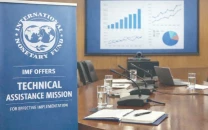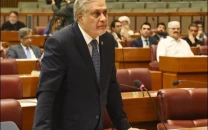Doing things differently
In 2019, let us strive to support both the scholars and the scholarship!

The writer is a Howard Hughes Medical Institute professor of biomedical engineering, international health and medicine at Boston University.
He tweets @mhzaman
First, let us get rid of this chief guest business. Anyone who has ever gone to a conference or a seminar knows well the charade of the chief guest. In nearly all cases, the chief guest is someone who is a prominent politician, judge, army officer, government servant or a business person. The chief guest most often comes late and sits pretty on the platform in the centre. Then he or she gives some remarks. These remarks can be one of two kinds. Either prepared remarks that are typed by some secretary or personal assistant. They are facts and figures that require exactly two minutes to dig up online and provide no insight. Or worse, if the speaker goes off script, it ends up in Freudian slips, racist or misogynist jokes or statements that are just bizarre and cringe-worthy. The next few days are then spent clearing the mess. This whole exercise is futile and highly counterproductive.
Let us ask ourselves: why do we need a chief guest? What if the conference only had experts? And if we do want someone to take a prominent place, let it be a keynote speaker who brings research credentials and talks about his or her work and shares insights from that in a rigorous, thoughtful way. There is absolutely no need to stroke the ego of politicians, judges, or any other dignitaries by inviting them to speak at a conference where they have nothing of real value to add.
Second, let us please get rid of the generalists and ‘analysts’ in our conferences and seminars. With the opening of new TV channels, we have created a whole nation of experts. Every night, on every news analysis programme, there is a ‘mahir’ (an expert) sitting next to the anchorperson. It remains unclear what that person is an expert in, as the ‘mahir’ comments on everything from BA flights to IMF loans to sectarianism. This cohort of generalists has not only colonised the TV, they have now started to appear in conferences as well. The other day I was looking at the proceedings of a conference organised by Dr Abdus Salam — I could not find a single ‘mahir’ type in the list. Everyone was a domain expert, adding value through his or her scholarly work. The same was true at other conferences in social sciences and humanities as well. Conferences need scholars, not people who are good at tweeting or just reading news. Let us strive to have real scholars and domain experts at our meetings. Let us also emphasise to see new faces, younger colleagues and ensure that our conferences have diversity in all of its manifestations.
Finally, let us hold our conferences, seminars and symposia at universities and colleges and not at elite hotels. The best conferences need to engage the youth, reach out to those who have had a limited opportunity and not only be for the elite. The hotels are not accessible to many, and frankly if we get rid of chief guests, we will have to worry less about the most stringent security protocols. Universities and colleges may not have the fanciest ballrooms for holding a meeting, but that is ok as long as we compensate for the ambience by the depth of scholarship.
In 2019, let us strive to support both the scholars and the scholarship!
Published in The Express Tribune, January 1st, 2019.
Like Opinion & Editorial on Facebook, follow @ETOpEd on Twitter to receive all updates on all our daily pieces.















COMMENTS
Comments are moderated and generally will be posted if they are on-topic and not abusive.
For more information, please see our Comments FAQ